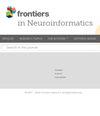结合 REDCap、BIDS 和 SQLite 优化神经科学数据管理:脑深部刺激案例研究
IF 2.5
4区 医学
Q2 MATHEMATICAL & COMPUTATIONAL BIOLOGY
引用次数: 0
摘要
神经科学研究需要生成大量的异构数据(如人口统计学、临床记录、医学影像)。研究中心对这些数据进行整合和分析,对于阐明疾病机制和改善临床疗效至关重要。然而,诊所的数据收集通常依赖于非标准化的方法,如纸质文档。此外,不同部门收集的数据类型各异,妨碍了数据的高效组织、安全共享和符合 FAIR(可查找、可访问、可互操作、可重用)原则。因此,在本手稿中,我们介绍了一个专门的数据管理系统,旨在加强深部脑刺激(DBS)的研究工作流程,这是一种最先进的神经外科手术,用于治疗运动和精神障碍症状。该系统利用 REDCap 来促进医院环境中的准确数据采集以及与研究机构的安全共享,利用脑成像数据结构(BIDS)作为图像存储标准,利用 DBS 专用 SQLite 数据库作为综合数据存储和所有数据类型的统一接口。自主开发的 Python 工具可自动处理这三个组件之间的数据流,确保它们之间的全面互操作性。该框架已成功用于采集和分析两家医疗机构 107 名患者的数据。它有效地解决了管理、共享和检索不同数据类型的难题,促进了医疗和研究机构在数据质量、组织、分析和协作方面的进步。本文章由计算机程序翻译,如有差异,请以英文原文为准。
Optimizing neuroscience data management by combining REDCap, BIDS and SQLite: a case study in Deep Brain Stimulation
Neuroscience studies entail the generation of massive collections of heterogeneous data (e.g. demographics, clinical records, medical images). Integration and analysis of such data in research centers is pivotal for elucidating disease mechanisms and improving clinical outcomes. However, data collection in clinics often relies on non-standardized methods, such as paper-based documentation. Moreover, diverse data types are collected in different departments hindering efficient data organization, secure sharing and compliance to the FAIR (Findable, Accessible, Interoperable, Reusable) principles. Henceforth, in this manuscript we present a specialized data management system designed to enhance research workflows in Deep Brain Stimulation (DBS), a state-of-the-art neurosurgical procedure employed to treat symptoms of movement and psychiatric disorders. The system leverages REDCap to promote accurate data capture in hospital settings and secure sharing with research institutes, Brain Imaging Data Structure (BIDS) as image storing standard and a DBS-specific SQLite database as comprehensive data store and unified interface to all data types. A self-developed Python tool automates the data flow between these three components, ensuring their full interoperability. The proposed framework has already been successfully employed for capturing and analyzing data of 107 patients from 2 medical institutions. It effectively addresses the challenges of managing, sharing and retrieving diverse data types, fostering advancements in data quality, organization, analysis, and collaboration among medical and research institutions.
求助全文
通过发布文献求助,成功后即可免费获取论文全文。
去求助
来源期刊

Frontiers in Neuroinformatics
MATHEMATICAL & COMPUTATIONAL BIOLOGY-NEUROSCIENCES
CiteScore
4.80
自引率
5.70%
发文量
132
审稿时长
14 weeks
期刊介绍:
Frontiers in Neuroinformatics publishes rigorously peer-reviewed research on the development and implementation of numerical/computational models and analytical tools used to share, integrate and analyze experimental data and advance theories of the nervous system functions. Specialty Chief Editors Jan G. Bjaalie at the University of Oslo and Sean L. Hill at the École Polytechnique Fédérale de Lausanne are supported by an outstanding Editorial Board of international experts. This multidisciplinary open-access journal is at the forefront of disseminating and communicating scientific knowledge and impactful discoveries to researchers, academics and the public worldwide.
Neuroscience is being propelled into the information age as the volume of information explodes, demanding organization and synthesis. Novel synthesis approaches are opening up a new dimension for the exploration of the components of brain elements and systems and the vast number of variables that underlie their functions. Neural data is highly heterogeneous with complex inter-relations across multiple levels, driving the need for innovative organizing and synthesizing approaches from genes to cognition, and covering a range of species and disease states.
Frontiers in Neuroinformatics therefore welcomes submissions on existing neuroscience databases, development of data and knowledge bases for all levels of neuroscience, applications and technologies that can facilitate data sharing (interoperability, formats, terminologies, and ontologies), and novel tools for data acquisition, analyses, visualization, and dissemination of nervous system data. Our journal welcomes submissions on new tools (software and hardware) that support brain modeling, and the merging of neuroscience databases with brain models used for simulation and visualization.
 求助内容:
求助内容: 应助结果提醒方式:
应助结果提醒方式:


